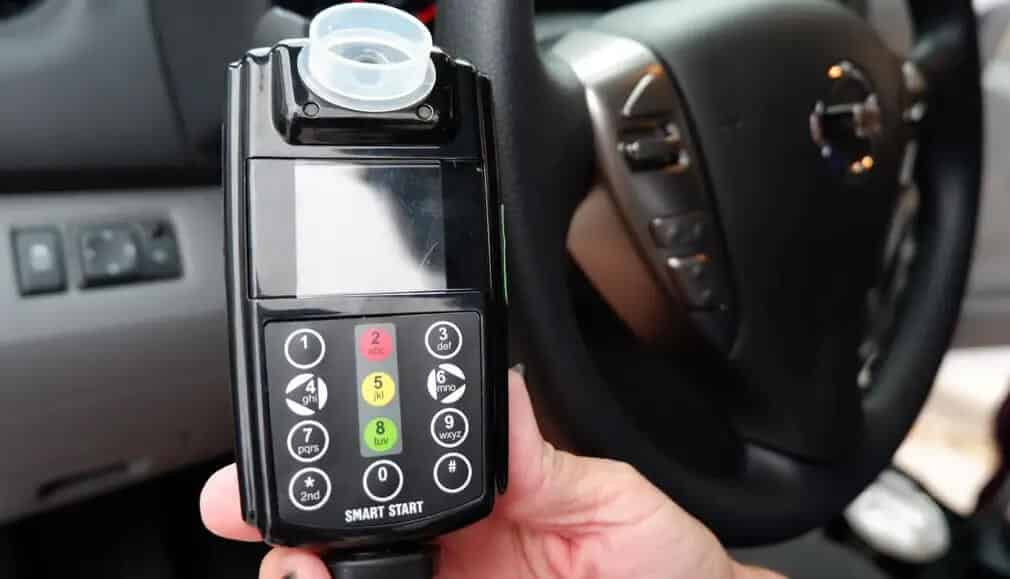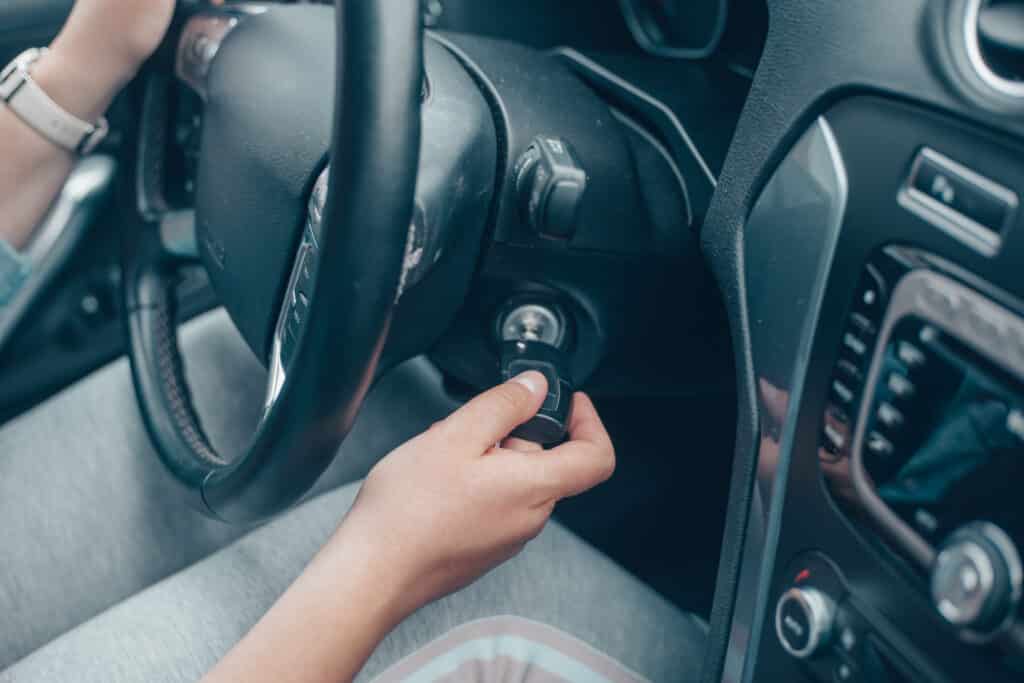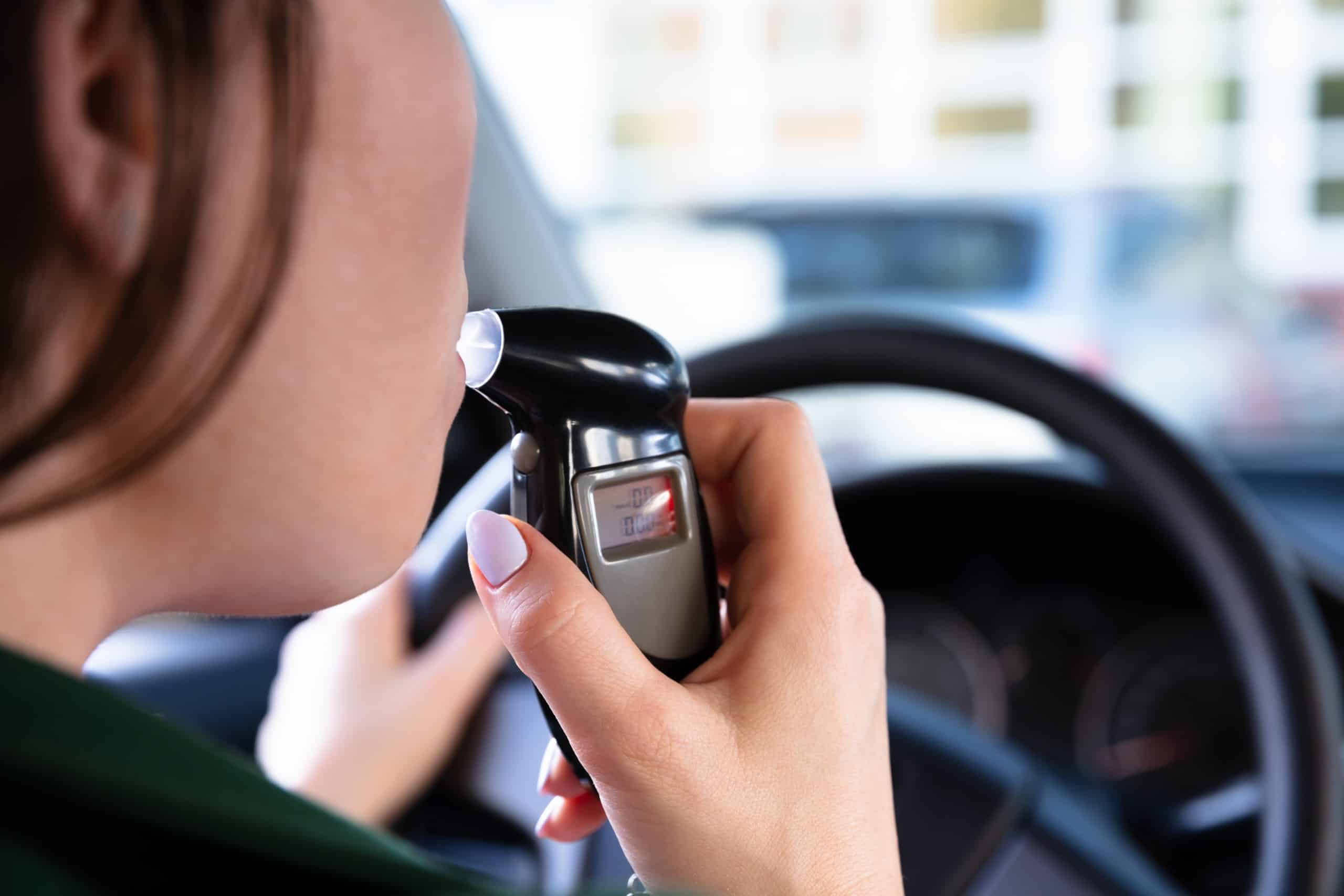Table of Contents
- 1 What Is an Ignition Interlock Program?
- 2 Is Ignition Interlock Mandatory in Ontario?
- 3 Conditions of Participation in the Program
- 4 How Much Does It Cost To Install And Use An Ignition Interlock Device In Ontario?
- 5 Licence Suspension Reduction Tips
- 6 Conclusion
- 7 FAQ
- 7.1 Can I drive any vehicle with an ignition interlock condition in Ontario?
- 7.2 What happens if the ignition interlock device detects alcohol?
- 7.3 Does an ignition interlock requirement apply if I do not own a vehicle?
- 7.4 Can someone else drive a car that has an ignition interlock device installed?
- 7.5 What happens after I complete the ignition interlock program in Ontario?
Installing an Ontario ignition interlock is one of the penalties for convicted DUI offenders. Participation in it is mandatory to regain your license. Learn everything you need to know about ignition interlocks using this guide, updated in 2026.
Impairment penalties for all drivers usually include the following (However, they differ depending on the circumstances)
- Suspension of the license to operate a motor vehicle;
- Payment of a fine (starting from $250 for “warn” range and gradually increasing, depending on the degree of the offense);
- Payment of a licence reinstatement fee every time your licence is suspended;
- Imprisonment for up to 2 years if there are extenuating circumstances;
- Ignition interlock device installation for six months, starting from the 3rd offence;
- A mandatory education or treatment program and a medical evaluation.
In some cases, you may be able to shorten your suspension by installing an ignition interlock device early.
What Is an Ignition Interlock Program?
The principle of ignition interlock Canada is the installation of a special breathalyzer connected to the car’s start system. If the driver refuses to undergo it or the tester detects a blood alcohol content above the allowable limit, the vehicle will not start.
The maximum allowable blood alcohol content is set at 20mg per 100ml (BAC 0.02). While driving, the Ontario Ignition Interlock program will prompt you to retake the tests so that you will not be tempted to drink.

Is Ignition Interlock Mandatory in Ontario?
Yes, it is. If a driver is convicted of drunk driving or has received 3rd administrative suspension, the installation of an Ontario ignition interlock will become a mandatory part of life.
Under it, the driver will be required to enroll in an ignition interlock program for installation on his or her vehicle. It is also permissible to operate another vehicle equipped with such a device.
The minimum mandatory participation periods for the Ontario ignition interlock program in 2026 are as follows:
- As a part of a warn range penalties for all drivers (BAC between 0.05-0.079 or the Standard Field Sobriety Test failure), starting from the third stop – 6 months;
- As a part of the impairment penalties for all drivers (over 80, a Drug Recognition Expert evaluation, and alcohol or drug testing failure), starting from the third stop – 6 months;
- As a part of the additional penalties for criminal impaired driving charges:
- First conviction – at least 1 year
- Second conviction within 10 years – at least 3 years
- Third conviction within 10 years – at least 6 years
The driver has the right to refuse to install the device in his vehicle. In this case, a rental car with an Ontario ignition interlock can be used. However, if you gain a fourth conviction within 10 years, you’ll get a lifetime licence suspension, with no possibility of reduction.
Conditions of Participation in the Program
Not only is it important to install an Ontario ignition interlock, but it is also important to join the program. If a driver is caught for repeated driving under the influence of alcohol, he or she is automatically excluded from the program and has his or her license revoked. Certain violations may result in expulsion from the program:
- Using a device from an illegal Ontario ignition interlock location;
- The driver has independently hacked into or removed the device;
- Missing an appointment with a software service provider;
- The driver failed to install the interlock within 30 days of license reinstatement.
All program participants must have their Ontario ignition interlock checked periodically for device activity. If the check reveals attempts to start the vehicle while exceeding the BAC limit of 0.02, participation in the program will be renewed for 3 months. Skipping the performance check will result in the same penalty.
How Much Does It Cost To Install And Use An Ignition Interlock Device In Ontario?
Ignition interlock costs in Ontario vary. The average cost for a set of services is at least $1,500 and no more than $2,000 per year. It includes installing the device, maintaining and monitoring it, and connecting it to the program.
To understand how much an ignition interlock costs in Ontario, you should be guided by some factors:
- The parameters of the vehicle on which the ignition interlock is installed (year of manufacture, make, model);
- The period of installation of the ignition interlock in Ontario;
- Availability of additional features on the device (GPS, real-time reporting);
- Location and jurisdiction where the indictment and order to connect to the program were issued.
Each Ontario ignition interlock service provider has the right to set its price. It is recommended that you check the price list in advance.

Licence Suspension Reduction Tips
For first-time DUI offenders who plead guilty, the license suspension may be reduced to 3 months. This decision is made as part of the ignition interlock program review.
If the offender is arrested for the first time but does not plead guilty, the license reinstatement period may be reduced to 6 months. The final period will depend on the court order after the verdict is pronounced.
Offenders who are caught a second time for DUI and plead guilty are entitled to expect a minimum penalty – a license suspension reduction of 3 years to 9 months.
Conclusion
If you are facing a DUI charge and asking yourself “How do I get the best possible resolution for my DUI case?”, you should weigh the consequences it could have on your future. An experienced DUI lawyer in Brampton will be able to analyze the details of your case, choose a sound strategy, and increase the chances of a favourable outcome.
With the right specialist, you can count on a reduced charge or a full acquittal. If necessary, a DUI attorney can help you fill out an Ontario ignition interlock form and other related documents.
FAQ
-
Can I drive any vehicle with an ignition interlock condition in Ontario?
No. In Ontario, you are only permitted to drive vehicles that are equipped with an approved ignition interlock device when your licence includes an interlock condition. Driving a vehicle without the device — even for a short distance or in an emergency — is a serious offence and can result in additional fines, licence suspension, or criminal charges.
-
What happens if the ignition interlock device detects alcohol?
If the ignition interlock device detects alcohol above the permitted limit, the vehicle will not start. In addition, failed tests, missed tests, or attempts to tamper with the device are recorded and reported to the monitoring authority. These violations can extend the duration of your ignition interlock requirement or result in additional penalties from the Ministry of Transportation of Ontario.
-
Does an ignition interlock requirement apply if I do not own a vehicle?
Yes. Even if you do not own a car, an ignition interlock condition on your Ontario driver’s licence still applies. If you later purchase or gain access to a vehicle, you must install the device before you are legally allowed to drive.
-
Can someone else drive a car that has an ignition interlock device installed?
Yes. Another person may drive a vehicle equipped with an ignition interlock device if they comply with the device’s requirements. However, any failed breath tests or violations are recorded and may still be attributed to the registered driver, creating legal or administrative complications.
-
What happens after I complete the ignition interlock program in Ontario?
Once you successfully complete the required ignition interlock period with no outstanding violations, you can apply to have the interlock condition removed from your driver’s licence. After approval, the device can be removed from the vehicle, and your driving privileges may be fully reinstated, subject to any other court-ordered or Ministry requirements.

